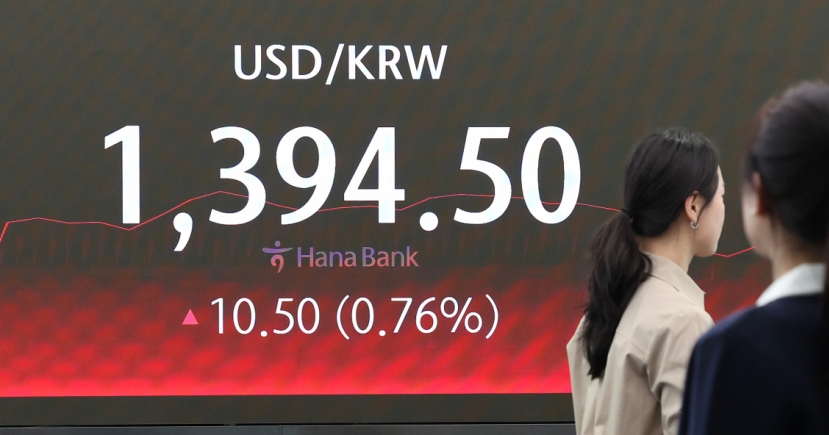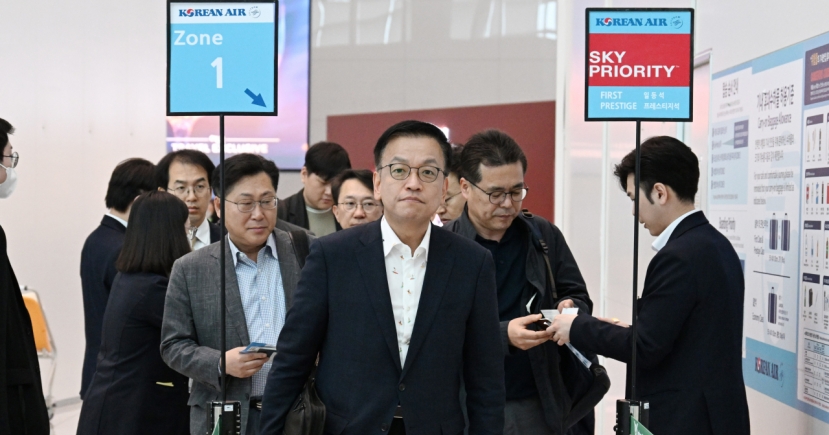Market Now
‘For durable recovery, S. Korea’s monetary policy can remain accommodative’
 |
Krishna Srinivasan, deputy director of the IMF’s Asia and Pacific department |
The Bank of Korea’s August decision to raise its key rate has sent a market signal that the pandemic-triggered liquidity party in South Korea could be nearing an end.
The International Monetary Fund, a global organization striving for financial stability, however, remained cautious about the central bank’s hawkish turn to fight rising inflationary pressure and soaring household debt, advising it to “slow down the pace of rate normalization.”
“Korea’s monetary policy stance since the pandemic outbreak has been broadly supportive of growth. In our view, the current policy stance (the BOK’s monetary easing stance) seems appropriate considering employment gaps, lingering COVID-related uncertainties,” said Krishna Srinivasan, deputy director of the IMF’s Asia and Pacific department, in an interview with The Korea Herald.
“To ensure the recovery is durable, monetary policy can remain accommodative, with a greater reliance on macroprudential tools to address financial stability concerns.”
The comment came as the central bank’s chief last week suggested a possible additional hike in November, saying that the Korean economy was on a solid growth track.
After slashing the base interest rate to a record low of 0.5 percent from 0.75 percent in May last year to provide liquidity to banks, businesses and households hit hard by the COVID-19 crisis, the BOK has kept its benchmark interest rate there, but embarked on a rate hike by 0.25 percentage point in August.
The IMF official, however, addressed the central bank’s concerns over outstanding debt held by Korean households.
“Korea’s household debt is on the higher side compared to other countries in the OECD (Organization for Economic Cooperation and Development) and has been rising rapidly recently, thus warranting close attention by the authorities. The financial authorities should remain vigilant and further tighten borrower-based macroprudential tools, particularly on unsecured lending, if the pace of increase in household lending does not slow down,” he said.
On concerns over the government’s aggressive fiscal policy, Srinivasan said that stance was necessary to support economic recovery.
The Finance Ministry proposed a record-high budget of 604.4 trillion won ($508.9 billion) for next year to expand economic stimulus packages like the COVID-19 cash handout program and boost investment in developing future growth engines.
“Fiscal policy has been appropriately expansionary so far to help support the economic recovery from the pandemic. The authorities should frontload budget execution and be prepared to raise spending plans if signs of domestic demand weakness appear that risk slowing the recovery. Korea has ample space to provide fiscal stimulus in the near term,” Srinivasan said.
“The still partial nature of the recovery and lingering COVID-related risks suggest a need to be cautious with consolidation.”
But he also noted potential risks stemming from the government’s expansionary fiscal policies.
“Over the medium term, gradual fiscal consolidation will be needed to safeguard debt sustainability and address long-term fiscal challenges, including the expected costs from population aging,” he said.
The Washington-based fund earlier kept its 2021 economic growth outlook for South Korea unchanged at 4.3 percent, while revising down its projection for the global economy, citing “robust exports” and “state-run stimulus measures,” as the key factors fueling economic growth in the nation.
On growing controversy over resumption of partial short selling, the deputy director said the Korean stock market was ready to embrace an outright resumption.
Short selling is a trading tactic whereby investors immediately sell borrowed stocks in the belief that share prices will fall, allowing them to later repurchase the stocks and return them to the lender.
The 14-month ban was partially lifted from May 3, as the nation’s regulator allowed short sales of large-cap stocks on the Kospi 200 and Kosdaq 150 indexes.
“Short selling facilitates the efficient functioning of financial markets by enhancing price discovery and improving the ability of market participants to manage risk-taking,” he said.
“The authorities have sought to balance market efficiency and consumer protection considerations by combining the gradual reinstatement of short selling of stocks with strengthened oversight and enforcement of associated regulations. Overall, this approach seems appropriate,” he added.
When asked for his view on Seoul’s regulatory measures recently imposed on fintech companies, Srinivasan called on authorities to take an “agile approach” with evolving regulations.
“This requires an agile approach from the authorities, with constantly evolving regulations that preserve incentives for innovation, promote transparent competition and limit competitive distortions through regulatory arbitrage between traditional banks and new providers,“ he said.
Srinivasan joined the IMF in 1994 and has served in several departments across the institution, including the Western Hemisphere department and in research. He currently oversees the IMF’s work on several countries in the Asia-Pacific region, including China, South Korea, Hong Kong, Mongolia and Pacific islands.
By Choi Jae-hee (cjh@heraldcorp.com)








